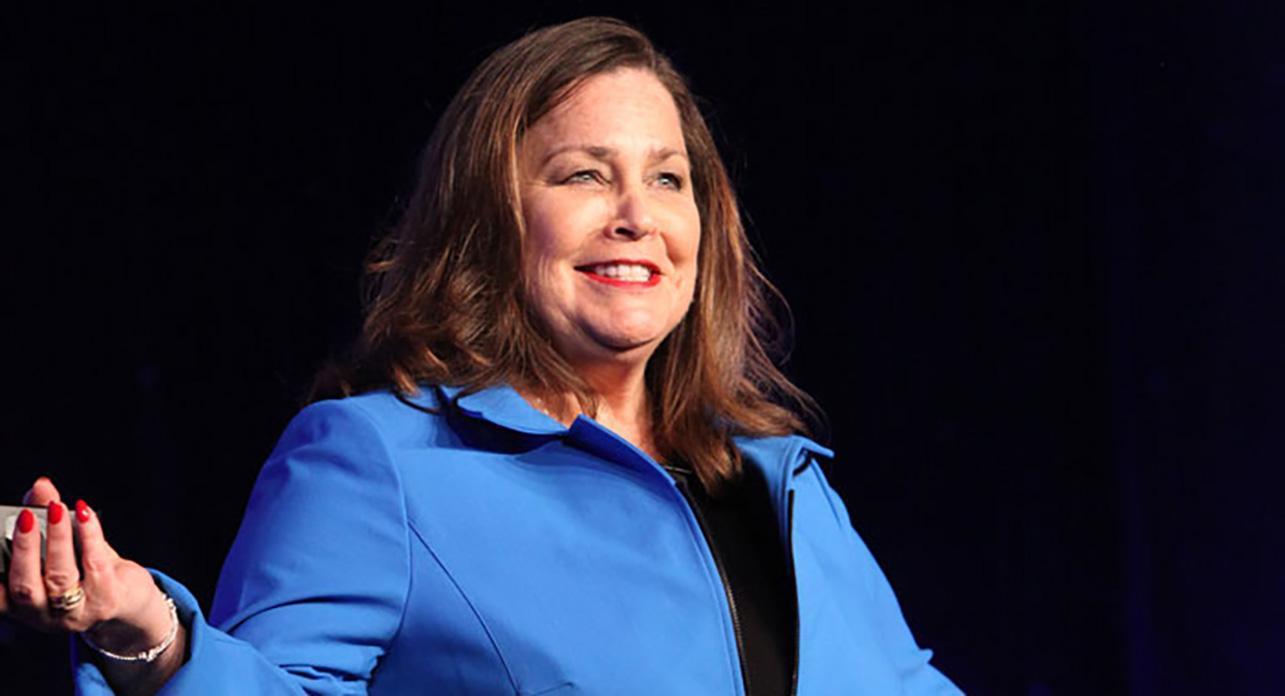
RETS Associates’ new survey on gender equality in commercial real estate is in line with the findings of CREW Network’s benchmark studies over the past decade, national CREW CEO Wendy Mann (pictured) told Connect Media. She called studies such as the RETS and CREW surveys “required reading” for decision-makers at CRE organizations.
Derived from a survey of 615 women in CRE, the RETS study found that pay inequity is the biggest issue facing women in the industry. With eight out of 10 respondents citing the salary gap, no other issue came close, although some media reports have focused on the problem of sexual harassment identified in RETS’ study.
“This survey confirms what our research has shown,” said Mann. “We know that the CRE industry continues to lag in gender equity—across the board in C-suite and board positions, pay and opportunities.” Or, as Cushman & Wakefield’s Jennifer Hafner, president of CREW Inland Empire, put it, “Women have made great strides in the commercial real estate industry, but there is still room for improvement and greater diversity.”
A 2015 CREW study identified an “aspiration gap” among women in CRE: 28% of women in the industry aspire to the C-Suite versus 40% of men. The most recent CREW study, issued in December 2016, cited a lack of support for women—both in the C-suite and at home—as the most common reason for this gap. The second most commonly cited factor in the aspiration gap was women’s belief that holding a C-suite position would adversely affect their commitments and responsibilities outside of work.
CREW’s benchmark studies “provide the hard data and pinpoint areas where we need to improve, including mentoring and sponsoring women in our companies, and analyzing our hiring and compensation practices,” said Mann. “And, our recent white papers have highlighted how to identify unconscious bias and other barriers for women in the industry, and best practices of CRE companies who are getting gender equity right.”
In Mann’s view, “these studies, surveys and publications should be required reading for all CRE leaders. Until CRE leaders understand what the market is telling them, they won’t understand what the problem is and how to solve it.”
The bottom line, said Mann, is that “gender equity will come through a culture change first in companies, and then industry-wide. This kind of change that starts at the top of the organization has not happened. And the most important thing is that we know that gender diversity adds value to the bottom line in CRE companies. Studies have shown that companies with a gender diverse board, C-Suite and management are more profitable.”
Passco Companies’ Stacy Stemen, president of CREW Orange County, cited the importance of mentorship and encouragement in overcoming gender bias. “It is important to encourage and mentor women to be confident, creative and courageous,” she said.
“By having confidence in yourself, being creative in your approach and having the courage to ‘pitch’ yourself to colleagues and potential business partners, you will be amazed at the results,” she added. “Being a part of a strong network of other like-minded women and men, who promote the advancement of women in CRE, will help narrow the gender equity gap.”
This article was originally published on Connect Media.

